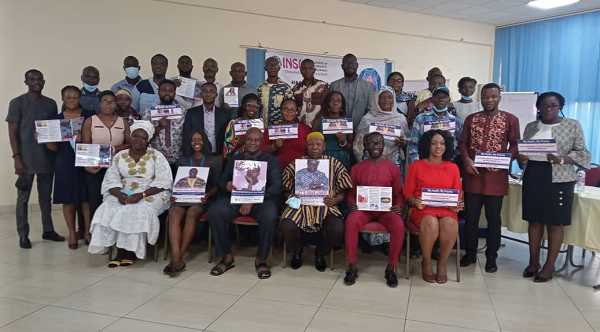
Education materials on Trans Fatty Acids launched
Stakeholders in the food and health value chain have called for an urgent action to help reduce Trans-Fatty Acids (TFAs) consumption in foods in Ghana.
They (stakeholders) included the World Health Organisation, Food and Agriculture Organisation, Ghana Health Service, Ghana Education Service, National Health Insurance Scheme, Ghana Health Service, Ghana Standards Authority, and a host of Civil Society Organisation.
Advertisement
This is because, according to them, TFAs are dangerous to human health if consumed and that there was the need to raise awareness on it in order for people to know the dangers associated with it.
The stakeholders made the call when the Institute of Leadership and Development (INSLA), a non-profit civil society organisation in Accra, launched education materials on TFAs in Accra.
The education materials on TFAs are aimed at creating awareness on TFAs as well as educating the public about the associated risks of consuming TFAs in foods.
Speaking at the launch, the Project Manager of INSLA, Mr Issah Ali, said consumption of TFAs had dire consequences on people’s health, noting that reducing or avoiding the consumption of TFAs has enormous benefits on people’s health.
He said the rate at which TFAs was killing people was alarming, hence the need to raise awareness on it.
Sadly, he observed, in spite of the dangers associated with the consumption of TFAs, many people were unaware of it, hence the will of the NGO to raise awareness on TFAs.
He said INSLA as an NGO had over the years been advocating against TFAs consumption in Ghana, calling on other Civil Society Organisations as well as critical stakeholders in the food and health value chain to join the fight against TFAs consumption in Ghana.
For him, fighting to reduce or eliminate TFAs in Ghana would go a long way to improve the economic gains of the country as it would reduce the health burden on the government.
A representative from the NHIS said the Authority spent about 11 per cent of its budget on Non-Communicable Diseases, which TFAs played a major role in it.
For him, industrially produced TFAs pose many health risks to the people who consume it, calling for an increase awareness on the need to reduce or eliminate TFAs from Ghana.
Similarly, the representatives of the WHO, FAO and the Ghana Education Service called for the right communications channels to be used in raising awareness on TFAs in Ghana.
TFAs
Trans fat, also called trans-unsaturated fatty acids or trans fatty acids, is a type of unsaturated fat that naturally occurs in small amounts in meat and milk fat.
Trans-fatty acids are manufactured fats created during a process called hydrogenation, which is aimed at stabilising polyunsaturated oils to prevent them from becoming rancid and to keep them solid at room temperature.
TFAs are fats created during food preparation, and can also be found in snacks, baked or fried foods or oils used in the cooking at home, restaurants or by street vendors. Trans fat is considered the worst type of fat to eat.
According to the World Health Organisation (WHO), increased intake of trans-fat (greater than one per cent of total energy intake) is associated with increased risk of coronary heart disease mortality and events.



